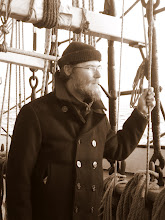Graphs, straight edges, and math oh my!
An interesting "Pie in the Sky Project"
Back in the days before the
availability of ubiquitous computing capabilities complex mathematical
relationships and rules of thumb were often calculated using graphical
computations known as Nomograms or Abacs.
These graphs were laid
out in a way that using a straightedge one could determine the result of
often complex multi-variable calculations. They were used in everything
from engineering and navigation to accounting. They were also used in business and government
where there was only a vague mathematical relationship between inputs.
This one for example, is used for "quantitative risk assessment of food to guide sampling/analysis for the
purposes of official control of food and to support the enforcement of
food safety/consumer protection law."
This series of posts by Ron Doerfler describes the process by which such graphs are generated:
http://myreckonings.com/…/the-art-of-nomography-i-geometri…/
So what is the Pie in the Sky Project here?
- Why not create our own Steampunk Nomograms?
- What kind of Nomograms would our Steampunk Mad Scientists use?
- Would they be complex and arcanely illuminated or simple and elegant?
- Would they be kept in massive bound books chained in our laboratories or kept in our pockets in miniature books with fold out pages?
- Would they have pockets in the covers to hold exotic curves and circular slide rules or would they have a simple straightedge that would also work as a bookmark.
- What kinds or equations and nomograms would a Dr Frankenstein use?
- What about an Airship Engineer?
- What would the Abac book of an Aetherwave operator look like?
Keep your sightglass full, your firebox trimmed and your water iced.
KJ
P.S. This book from 1918 has an amazing amount of info and examples of interesting nomograms. The math isn't too bad but it does need some concentration to follow :-)
Graphical and Mechanical Computation
P.P.S Lots of good Nomography tools and some interesting examples here:
Society for the Conservation and Advancement of Nomography
.png/428px-Risk_Based_Sampling_Nomogram_(3yr).png)



